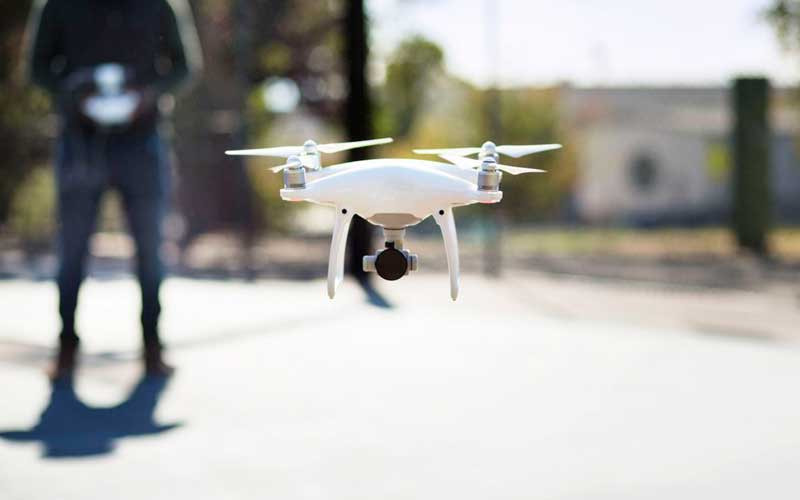
THE Civil Aviation Authority of Zimbabwe (Caaz) has licenced over 300 drone pilots and certified more than 10 companies to use unmanned aerial vehicles, amid criticism that the organisation is blocking investment into the industry.
This comes as some companies have stated their willingness to invest in the importation of drones into the country for sectors, such as agriculture, health, and mining.
Speaking at the Media Mining Awards 2023 last week, Mines and Mining Development deputy minister Polite Kambamura said the use of drones and artificial intelligence in the mining sector would be a game changer to the industry.
The Zimbabwe Independent is informed that despite the promotion by government of the use of drones, Caaz has a cumbersome process in attaining the necessary documentation to allow for drone usage.
In an interview with the Independent, Caaz public relations and communications manager Firstme Vitori said for one to get a remote pilot licence they must undergo training from a facility approved by the authority.
“To date, Caaz has licenced over 300 drone pilots and has certified over 10 companies to use drones. For one to get a remote pilot licence they must undergo training at a Caaz approved training organisation. At the moment, there are three approved training schools in Harare,” she said.
“No person is allowed to operate a drone without a valid remote pilot licence and no individual or organisation is allowed to use a drone for corporate, commercial and non-profit operations without a valid remotely piloted aircraft systems operator certificate (ROC).”
For private or recreational use, she said individuals needed a remote pilot licence. Vitori said their drones should have a letter of approval and/or registration certificate. They must comply with Civil Aviation (Remotely Piloted Aircraft) Regulations, Statutory Instrument 271 of 2018, she pointed out.
- Airports Company strikes mega hotel deal
- Airports Company strikes mega hotel deal
- News in depth: Chinese firm yet to start airport job seven months after contract
- News in depth: Sneaking planes: Air traffic woes persist as govt promises elusive radar
Keep Reading
“For non-profit, corporate or commercial use, applications for ROC must be made to Caaz. The Civil Aviation (Remotely Piloted Aircraft) Regulations, Statutory Instrument 271 of 2018 can be downloaded from Caaz website under legislation or can be purchased from printflow,” Vitori said.
According to the American market research and consultancy firm, Grand View Research from 2023 to 2030, the worldwide commercial drone market is anticipated to expand from its 2022 valuation of US$19,89 billion at a compound annual growth rate of 13,9%.
This comes as drones have become more widely used in business settings.
Thus, the drone industry presents an investment opportunity considering that it is already being used for irrigation in agriculture and in surveilling potential areas for mining.
“Some people are not aware of the critical importance of following the stipulated regulations to ensure safety. Drones use the same airspace used by conventional planes (fixed wing aircraft, helicopters, microlights, balloons etc), hence the need to prevent accidents by ensuring that operators are licenced, that they are familiar with safety regulations, that drone pilots are licenced etc,” Vitori said.
“With regards to the use of drones, some of the functions of the authority includes, but not limited to, drafting regulations, which govern the use of drones regardless of the area of speciality, ensure implementation of the regulations, conduct surveillance activities and enforcement actions to ensure compliance with the regulations.
“Uses of drones vary across sectors to include agriculture, surveillance, mining, tourism and recreational purposes.”
Work Reel Africa Region head Stephen Mashingaidze said drones were important as they could speed up processes in the delivery of important items that are needed, especially in times of critical disasters.
“A drone can access any place in any form of disaster. Drones can be used in telemedicine. Zimbabwe’s health sector has collapsed; we need to look at new ways to leverage our health sector. Primarily, people can access information very quickly on medical conditions,” he said.
“Drones are vital in agriculture, especially in managing issues to do with climate change, and farm management.
“Drones can actually be used in supply chain management, for example, managing the queues that we have in border areas clearing. Monitoring can be done using the drone.
“It is a useful tool in terms of security; it can assist the police and the army,” Mashingaidze added.











